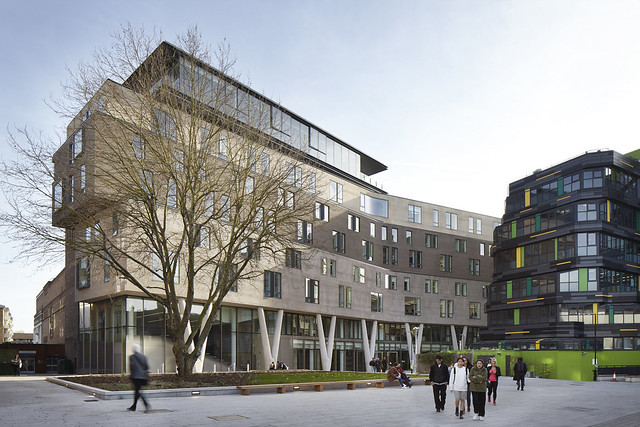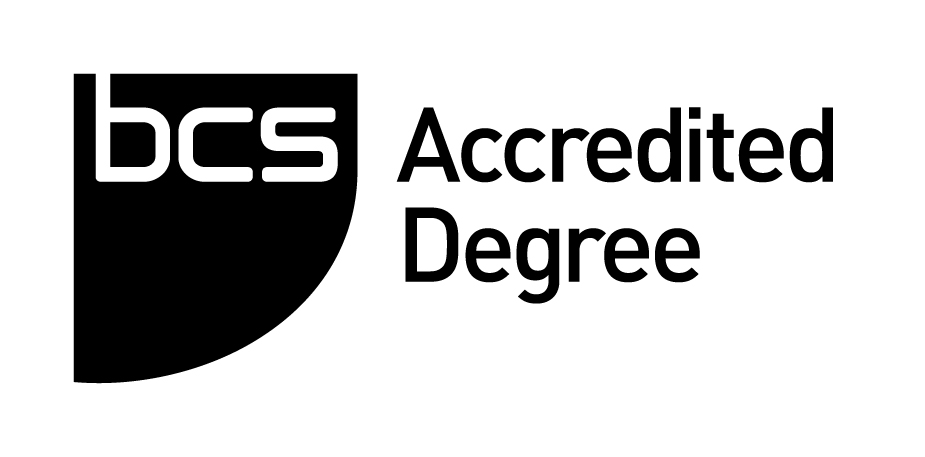Study options
- Starting in
- September 2025
- Location
- Mile End
- Fees
- Home: £12,850
Overseas: £33,500
EU/EEA/Swiss students
What you'll study
This MSc allows you to focus your studies and combine different AI topics to suit your personal requirements and future plans. Our world-class teaching, research, and industrial contacts will support you as you learn to understand fundamental AI concepts. You will study universal machine learning tools essential for any AI job profile, as well as specific practical and research skills across various AI topics.
You will gain experience with cutting-edge tools such as Deep Neural Networks (DNN), Deep Reinforcement Learning (Deep RL), and Large Language Models (LLMs) through regular exercises and practical labs. You will work closely with your lecturers and supervisors to carry out a major project on the AI topic you wish to specialise in.
The MSc Artificial Intelligence (AI) is structured in two different streams.
All students will study a set of compulsory modules that cover the fundamentals of machine learning, artificial intelligence, natural language processing, and ethics, regulation, and law in digital information processing and decision making.
In addition to the compulsory modules, you will choose one educational stream of elective modules during Welcome Week, based on your interests.
Professional Recognition
This degree is accredited by BCS, The Chartered Institute for IT, for the purposes of partially meeting the academic requirement for registration as a Chartered IT Professional. It is also accredited by BCS, The Chartered Institute for IT, on behalf of the Engineering Council, for the purposes of partially meeting the academic requirement for registration as a Chartered Engineer.
In addition, this degree is accredited by the Institution of Engineering and Technology on behalf of the Engineering Council as meeting the requirements for Further Learning for registration as a Chartered Engineer. Candidates must hold a CEng accredited BEng/BSc (Hons) undergraduate first degree to comply with full CEng registration requirements.
Structure
- Four compulsory modules
- Four elective modules under one educational stream
- Compulsory 10,000-15,000 dissertation/final project
In addition to the compulsory modules, you will also choose one educational stream from the two options below.
Language and Agents stream (default)
Semester A
- Machine Learning
- Artificial Intelligence
- Natural Language Processing
- Statistical Planning and Reinforcement Learning
Semester B
- Ethics, Regulation and Law in Advanced Digital Information Processing and Decision Making
- Information Retrieval
- Neural Networks and NLP
- Conversational Agents and Dialogue Systems
Multimodal AI stream
This stream examines the intersection of AI, Computer Vision, and Creative Domains. Students will explore the latest methods for image processing and pattern recognition, delving into the multifaceted applications of AI across Creative Domains such as audio, music, game design, fiction writing, and artworks. The programme covers both practical skills and the philosophy and science underpinning AI systems with creative responsibilities. Modules prioritise hands-on experience, enabling students to apply theoretical knowledge and develop a robust skill set in Multimodal AI.
Semester A
- Machine Learning
- Artificial Intelligence
- Natural Language Processing
- Introduction to Computer Vision
Semester B
- Ethics, Regulation and Law in Advanced Digital Information Processing and Decision Making
- Deep Learning for Audio and Music
- Deep Learning for Computer Vision
- Computational Creativity
Find out more about each module below, by looking them up in the module directory.
Please note that all modules are subject to change.
Assessment
- 67% Modules
- 33% Dissertation
- Modules are assessed through a combination of coursework and written examinations.
- You will also be assessed through an individual project.
Dissertation
Examples of past projects include:
- Procedural generation in Unity3D ML-Agents with reinforcement learning.
- Learning global-context music embeddings for music recommendation.
- Deep learning for automated damage inspection of wind turbine blades.
- Deep learning for traffic lights recognition.
- Deception detection using machine learning.
—"I am currently working as an AI Engineer in a fintech company. My role consists of NLP model retraining and the chatbot’s daily conversational review. I’m responsible for the natural language agents; fine-tuning and retraining the model based on production dialogue. Being able to successfully use and practice in the industry what I was taught at university has been very rewarding. As well as the knowledge that I acquired, Queen Mary helped to prepare me with hands-on practice, teamwork and industry experience."
Keith Vella, Artificial Intelligence MSc, 2019
Teaching
Teaching for all modules includes a combination of lectures, seminars and a virtual learning environment. Each module provides contact time with your lecturers, supported by lab work and directed further study.
You will be assigned an Academic Advisor who will guide you in both academic and pastoral matters throughout your time at Queen Mary.
Where you'll learn
Facilities
The School has excellent bespoke facilities, including:
- Augmented human interaction (AHI) laboratory
- Informatics teaching laboratory with 350 state-of-the-art computers
- Antenna measurement laboratory
- qMedia and arts technology studios (Performance lab, control room, listening/recording room)
- Robotics laboratory (ARQspace)
Campus
Teaching is based at Queen Mary’s main Mile End campus, one of the largest self-contained residential campuses in the capital. Our location in the heart of London’s East End offers a rich cultural environment.
We have invested £105m in new facilities over the past five years to offer our students an exceptional learning environment. Recent developments include the £39m Graduate Centre, providing 7,700 square metres of learning and teaching space.
The campus is 15 minutes from Central London by tube, where you will have access to many of the University of London’s facilities, such as the Senate House library.

About the School
School of Electronic Engineering and Computer Science
The School of Electronic Engineering and Computer Science carries out world-class research – and applies it to real-world problems. Being taught by someone who is changing the world with their ideas makes for exciting lectures, and helps you to stay ahead of the curve in your field. 99 per cent of our research is classed as ‘world-leading’ or ‘internationally excellent’ (REF 2021).
We are proud of our excellent student-staff relations, and our diverse student body, made up of learners from more than 60 countries.
The School has a close-knit student community, who take part in competitions and extracurricular lab activities.
Career paths
The demand for qualified experts in artificial intelligence is high; AI jobs are amongst the best paid in the industry, and a solid background in AI is highly desirable in many research disciplines.
Software Developer/Engineer, Data Scientist and Data Engineer are occupations that have seen a significant growth in demand for AI skills, according to a recent report from Lightcast. AI skills will also be integral for many 'jobs of the future' emerging across a diverse range of fields, including health, agriculture and the creative industries.
This data was taken from Graduate Outcomes Survey 2021/22
- 100% of graduates in highly skilled employment 15 months after graduation.
- £48,219 Average salary 15 months after graduation.
Fees and funding
Full-time study
September 2025 | 1 year
- Home: £12,850
- Overseas: £33,500
EU/EEA/Swiss students
Conditional deposit
Home: £2000
Overseas: £2000
Information about deposits
Part-time study
September 2025 | 2 years
- Home: £6,450
- Overseas: £16,750
EU/EEA/Swiss students
Conditional deposit
Home: £2000
Overseas: £2000
Information about deposits
Queen Mary alumni can get a £1000, 10% or 20% discount on their fees depending on the programme of study. Find out more about the Alumni Loyalty Award
Funding
There are a number of ways you can fund your postgraduate degree.
- Scholarships and bursaries
- Postgraduate loans (UK students)
- Country-specific scholarships for international students
Our Advice and Counselling service offers specialist support on financial issues, which you can access as soon as you apply for a place at Queen Mary. Before you apply, you can access our funding guides and advice on managing your money:
Entry requirements
UK
Degree requirements
A 2:1 or above at undergraduate level in Electronic Engineering, Computer Science, Software Engineering, Information Technology, Mathematics or a related discipline.
Other routes
Applicants with a good 2:2 degree (55% or above) will be considered on an individual basis.
Find out more about how to apply for our postgraduate taught courses.
International
English language requirements
The English language requirements for our programmes are indicated by English bands, and therefore the specific test and score acceptable is based on the band assigned to the academic department within which your chosen course of study is administered. Note that for some academic departments there are programmes with non-standard English language requirements.
The English Language requirements for entry to postgraduate taught and research programmes in the School of Electronic Engineering and Computer Science falls within the following English band:
Band 4: IELTS (Academic) minimum score 6.5 overall with 6.0 in each of Writing, Listening, Reading and Speaking
We accept a range of English tests and qualifications categorised in our English bands for you to demonstrate your level of English Language proficiency. See all accepted English tests that we deem equivalent to these IELTS scores.
Visas and immigration
Find out how to apply for a student visa.






